Click Here to read the post from July 15, 2009.



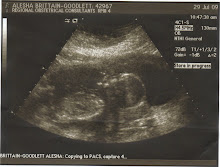
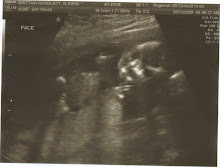
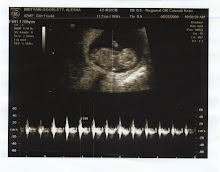

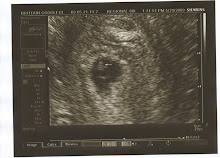

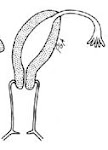

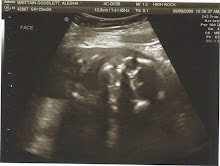


In the Apostle Paul’s letter to the Romans, he compares the Church to the human body (Romans 12:4–8). The Church is one body made of many members, each having his own God-given gift. Likewise, we humans have one body made up of many organs, with each serving its own God-given function.
Of all the body’s organs, perhaps the one that best exemplifies selfless service is the placenta. Most people give little thought to the placenta, and few appreciate the marvelous complexity and profound importance of this organ that is discarded and forgotten after birth. While parents and loved ones lift joyful prayers of thanks for the safe arrival of their newborn, few think of thanking God for the essential services rendered by His marvelously designed creation—the placenta.
After the egg is fertilized, the placenta is the very first organ to develop. Recent studies show that when the fertilized egg divides to form the first two cells, one is already destined to form the placenta, while the other becomes the baby.
As soon as three days after fertilization—weeks before the mother normally suspects she is pregnant—cells of the developing placenta, called trophoblasts, begin to produce hormones. These hormones ensure that the lining of the uterus—the endometrium—will be ready to receive the embryo’s implantation. Over the next few weeks, the developing placenta begins to make hormones that control the mother’s physiology in a way that ensures the proper supply of nutrients and oxygen, which are essential to the baby’s growth.
By about five days after fertilization the trophoblast cells, surrounding the developing embryo, begin to fuse together to form one giant cell with many nuclei (see Figure 1). This cell is called the syncytial trophoblast. One of the first functions of this placental giant cell is to invade the uterine wall of the mother in an amazing process called implantation (see Figure 2).
The placenta, sometimes called the “super organ” is evidence of the care and design of our Creator even at the earliest stages of life.
Although the developing placenta and baby implant within the thick nutrient-filled wall of the mother’s uterus, they are not actually part of the mother’s body. One of the placenta’s important roles is to protect the developing baby from an attack by the mother’s immune system, since the baby and the placenta are genetically unique and distinctly different from the mother.
It is still a mystery how the placenta prevents the mother from rejecting it and the baby as a foreign graft without shutting down her immune system.
After implantation, the placental giant cell “invades” the walls of several uterine arteries and veins, causing the mother’s blood to flow through channels within the cell (see Figure 3). When the baby develops its own blood and blood vessels, the mother’s blood and the blood of the developing baby come into close association, but they never mix or come into direct contact. The syncytial trophoblast forms a thin, seamless, and selective barrier between maternal blood and fetal blood. All the critically important nutrients, gases, hormones, electrolytes, and antibodies that pass from mother’s blood to the baby’s blood must travel across this seamless and selective filter. Waste products in the baby’s blood must, in turn, pass across this filter to the mother’s blood.
In order to appreciate the marvelous work of the placenta, consider this: while the unborn baby’s vital organs are developing and maturing, they (with the exception of the heart) are essentially useless. The placenta serves the functions of these organs by working in association with the mother. With the help of the mother’s blood, the placenta must function as the baby’s lungs, kidneys, digestive system, liver, and immune system. The placenta does this so well that a baby can actually survive until birth even when one or more of these vital organs sadly fail to develop in its own body.
During the later part of pregnancy, the flow of maternal blood through the placenta reaches a rate of about one pint (.5 liter) per minute. To allow an adequate surface area for exchange between mother’s blood and baby’s blood, the interface between the two is folded and amplified in a complex way that resembles the trunks, branches, and twigs of trees (see Figure 4). There are typically about 20 of these tree-like structures (called cotyledons) in the mature placenta. The baby’s blood flows in vessels inside these cotyledons, whereas the mother’s blood flows all around the outside, like air blowing through a small grove of trees. The entire surface of all the tree-like cotyledons is covered by syncytial trophoblast, forming a seamless covering, which comprises a single cell with millions of nuclei (see Figure 5). This means that the entire surface of the placenta is covered by one giant cell, which has a surface area of over 100 square feet (9.3 square meters).
During the baby’s development, the placenta is securely attached to the endometrium of the uterus by some of the larger branches of each cotyledon. When the uterus contracts to expel the placenta after the birth of the baby, some of the endometrial surface is torn off with it. This results in severing about 20 large uterine arteries which, if unchecked, would involve the loss of blood at a rate of about one pint per minute. Since fewer than five quarts (4 liters) of blood are in the adult female body, all the blood would be lost in less than 10 minutes. It is also important to note that the blood-clotting mechanism is suppressed in the placenta and uterine blood vessels during pregnancy, creating a situation comparable to a hemophiliac with 20 severed arteries. These factors result in a wound that no one would expect to survive!
How does a woman survive childbirth with such a wound? Here is another example of the awe-inspiring work of God, the Creator and Sustainer of life. You see, each of the severed uterine arteries has a precisely placed muscular sphincter that acts like a purse string, or a surgeon’s hemostat, to immediately close off the loss of blood. As a result, a normal birth involves the loss of only about a pint of blood. Simply amazing!
The next time you experience the joy of a baby’s birth, thank the Lord for providing this selfless placenta. And above all, reflect on the fact that our Creator, who at the time of childbirth so mercifully spares the mother from a fatal loss of blood, did not hesitate to shed His own blood in death to save us from sin, death, and the power of the devil.

41And, behold, there came a man named Jairus, and he was a ruler of the synagogue: and he fell down at Jesus' feet, and besought him that he would come into his house:
42For he had one only daughter, about twelve years of age, and she lay a dying. But as he went the people thronged him.
43And a woman having an issue of blood twelve years, which had spent all her living upon physicians, neither could be healed of any,
44Came behind him, and touched the border of his garment: and immediately her issue of blood stanched.
45And Jesus said, Who touched me? When all denied, Peter and they that were with him said, Master, the multitude throng thee and press thee, and sayest thou, Who touched me?
46And Jesus said, Somebody hath touched me: for I perceive that virtue is gone out of me.
47And when the woman saw that she was not hid, she came trembling, and falling down before him, she declared unto him before all the people for what cause she had touched him, and how she was healed immediately.
48And he said unto her, Daughter, be of good comfort: thy faith hath made thee whole; go in peace.
18While he spake these things unto them, behold, there came a certain ruler, and worshipped him, saying, My daughter is even now dead: but come and lay thy hand upon her, and she shall live.
19And Jesus arose, and followed him, and so did his disciples.
20And, behold, a woman, which was diseased with an issue of blood twelve years, came behind him, and touched the hem of his garment:
21For she said within herself, If I may but touch his garment, I shall be whole.
22But Jesus turned him about, and when he saw her, he said, Daughter, be of good comfort; thy faith hath made thee whole. And the woman was made whole from that hour.
21And when Jesus was passed over again by ship unto the other side, much people gathered unto him: and he was nigh unto the sea.
22And, behold, there cometh one of the rulers of the synagogue, Jairus by name; and when he saw him, he fell at his feet,
23And besought him greatly, saying, My little daughter lieth at the point of death: I pray thee, come and lay thy hands on her, that she may be healed; and she shall live.
24And Jesus went with him; and much people followed him, and thronged him.
25And a certain woman, which had an issue of blood twelve years,
26And had suffered many things of many physicians, and had spent all that she had, and was nothing bettered, but rather grew worse,
27When she had heard of Jesus, came in the press behind, and touched his garment.
28For she said, If I may touch but his clothes, I shall be whole.
29And straightway the fountain of her blood was dried up; and she felt in her body that she was healed of that plague.
30And Jesus, immediately knowing in himself that virtue had gone out of him, turned him about in the press, and said, Who touched my clothes?
31And his disciples said unto him, Thou seest the multitude thronging thee, and sayest thou, Who touched me?
32And he looked round about to see her that had done this thing.
33But the woman fearing and trembling, knowing what was done in her, came and fell down before him, and told him all the truth.
34And he said unto her, Daughter, thy faith hath made thee whole; go in peace, and be whole of thy plague.
No, I don't have a disease I am dying with. But mentally it feels that way at times. It has been said that infertility patients sometimes have depression similar to those who have battled cancer. It is an ongoing thing that is so hard to find relief in aside from the peace from Jesus Christ.
Notice the things I have made bold in print. The woman had been sick for awhile and had spent everything she had on doctors. Sounds familiar to me, how about you? I love my doctor dearly but she is not the person who will make me conceive. She does all that she can do and then it is up to God.
If I may but touch his garment, I shall be whole.
If I may touch but his clothes, I shall be whole.
I feel this way myself. I feel as though I am diving through the crowd to just touch the hem of my Savior's garment.
And what happened when she did? She was healed instantly. The Bible doesn't say that she began feeling better, no it was straightway, right then. And she felt her complete healing right then!
Imagine this woman! How awesome would it be to take this leap of faith? To touch this Savior's garment with all faith that you would be healed and for it to actually happen! She must have lived the rest of her life with the words of her Savior echoing in her mind, "Daughter, be of good comfort: thy faith hath made thee whole; go in peace."
Is this worth suffering for? I think so. Twelve years she spent suffering and coping with this disease before this healing and yet it brought her to this wonderful experience with Jesus. I think my infertility is worth suffering for because it has brought me closer to my Savior. I think that His answer is awaiting me and that it will be a miraculous experience. I don't know how or when but I claim this promise.
I want to be found touching Jesus' hem. I want to hear Him say, "Daughter, be of good comfort: thy faith hath made thee whole; go in peace." And I want to do just that, to go in peace.
It is a scary thing to step out on faith. Yet, I believe in my situation, that's where God is leading me. Total and complete surrender of this situation to Him and His will. I have faith that I will hear His words and be blessed with a precious gift from Heaven in the form of 10 little fingers and 10 little toes.
I claim my faith statement from last month. I believe this will be the month. Most importantly, I believe that no matter what month it is, it WILL (not just can) happen, just in God's time.
Have a great Easter guys and remember the cost of our Salvation. Most importantly, remember that this same Jesus who died a horrible death and arose on the third day .... is the same Jesus who is or can carry you through this down pouring rain of infertility or whatever your struggle is.
